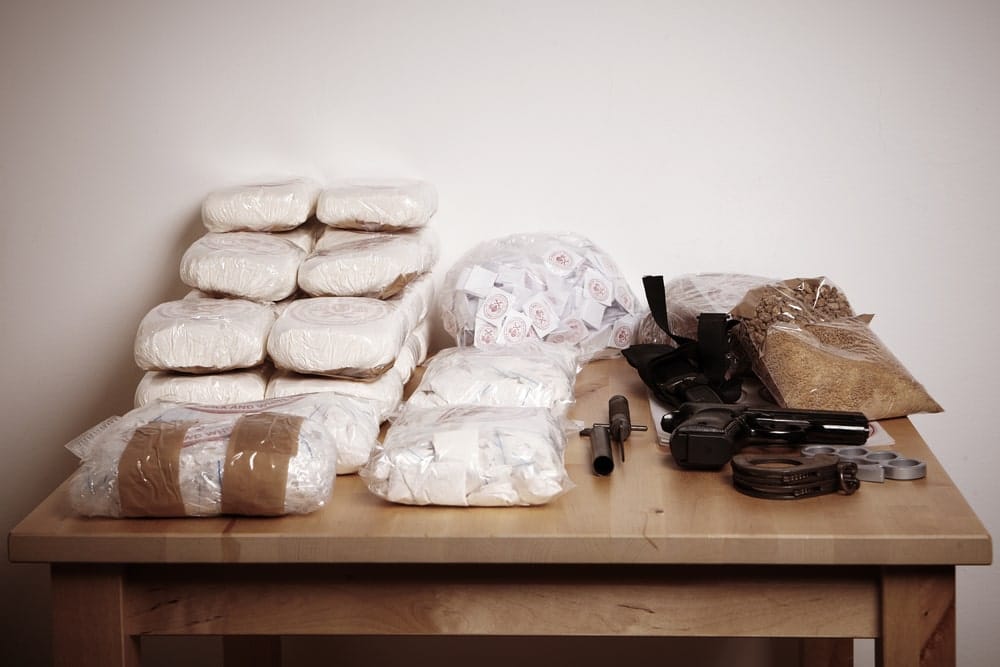Drug Trafficking Penalties in Maine: What You Need to Know
Being charged with drug trafficking in Maine is a serious legal matter that can result in harsh penalties, including significant prison time and a lasting criminal record. Unlike the dramatic portrayals of large-scale drug cartels in movies, many real-life drug trafficking cases in Maine involve everyday individuals accused of selling, distributing, or possessing illegal substances with the intent to distribute.
Under Maine law, “drug trafficking” refers broadly to the sale, furnishing, or possession with intent to sell controlled substances. These offenses are governed by complex statutes that categorize drugs into schedules—each carrying different levels of penalties depending on the substance involved, the quantity, and whether aggravating factors are present.
This article provides a clear, up-to-date overview of how drug trafficking is defined under Maine law, what penalties you may face, and the factors that can elevate a charge to aggravated trafficking. We also explain Maine’s drug schedule classification system and outline common legal defenses available to those accused of trafficking.
If you or a loved one is facing drug trafficking charges in Maine, don’t face the legal system alone. The consequences can be life-changing. Reach out to a qualified criminal defense attorney at The Maine Criminal Defense Group for strategic, experienced legal help.
Call 207-571-8146 or contact us online to schedule a consult with one of our highly skilled criminal defense & OUI lawyers, serving Southern Maine, today.
Table of Contents
Unlawful Trafficking & Aggravated Unlawful Trafficking in Maine
Perhaps the first thing to know about drug trafficking crimes is that these crimes fall into two primary categories: “unlawful trafficking” and “aggravated unlawful trafficking.” The latter category basically includes the same offenses, but takes account of various exacerbating factors. We will discuss these exacerbating factors in detail later; for the most part, the things which elevate a standard crime to aggravated status are fairly predictable.
If a person has multiple prior offenses, this can bump the crime to aggravated status. Or, if the person traffics a quantity which is deemed to be very excessive, then this can also elevate the severity of the crime.
Drug Schedules in Maine
Maine’s drug trafficking laws are closely tied to how substances are classified under the state’s controlled drug schedule system. Similar to federal law, Maine organizes drugs into Schedules W, X, Y, and Z, with each schedule reflecting the substance’s potential for abuse, medical use, and associated criminal penalties.
Trafficking involves not only the sale or distribution of illegal drugs, but also the knowing possession of certain quantities or concentrations of scheduled substances—even without actual distribution. This means a person can be charged with drug trafficking based solely on the amount or packaging of the drug in their possession, especially if there’s evidence of intent to distribute.
Under Title 17-A §1105-A of the Maine Criminal Code, a person may face aggravated drug trafficking charges if certain aggravating factors apply, such as:
- Trafficking to a minor – If a person sells or furnishes a scheduled drug to someone under the age of 18, the offense becomes significantly more serious.
- Proximity to schools – Drug offenses committed near school zones or involving minors often carry enhanced penalties.
Each drug schedule includes different substances and is subject to varying degrees of punishment under Maine law.
- A schedule W drug. Violation of this subparagraph is a Class A crime;
- Marijuana in a quantity of 20 pounds or more. Violation of this subparagraph is a Class A crime;
- A schedule X drug. Violation of this subparagraph is a Class B crime;
- Marijuana in a quantity of more than one pound. Violation of this subparagraph is a Class B crime;
- A schedule Y drug. Violation of this subparagraph is a Class C crime; or
- A schedule Z drug. Violation of this subparagraph is a Class C crime;
Under Title 17-A §1103, unlawful trafficking in scheduled drugs is when the person intentionally or knowingly traffics in what the person knows or believes to be a scheduled drug, which is in fact a scheduled drug.
If a person uses a vehicle to facilitate the trafficking of a scheduled drug, the court may, in addition to other authorized penalties listed below, suspend the person’s driver’s license, permit, privilege to operate a motor vehicle or right to apply for or obtain a license for a period not to exceed 5 years.
Drug Trafficking Penalties in Maine
If you’re facing a trafficking charge, the exact penalties will depend on the type of drug involved, how much was allegedly in your possession, and whether aggravating factors apply. Below is a breakdown of how Maine law penalizes different drug trafficking offenses.
As outlined above, Maine has four different drug schedules (W, X, Y, Z), as follows:
- Schedule W: includes drugs like heroin, morphine, amphetamines, cocaine, etc.
- Schedule X: includes chlorhexadol, sulfondiethylmethane, hashish, ketamine
- Schedule Y: includes phenobarbital, codeine, diazepam, chloralhydrate
- Schedule Z: Includes all other prescription drugs, marijuana, synthetic carbinoids
Schedule W is the most serious classification.
Drug trafficking is treated as a Class A, B, C, or D crime in Maine and the penalties are as follows:
Class A crimes (felonies)
- Class A crimes include trafficking in Schedule W drugs such as heroin, morphine, amphetamines, cocaine, etc.
- Class A crimes are considered a felony and are punishable by up to 30 years in prison and a $50,000 fine.
Class B crimes (felonies)
- Includes trafficking in a Schedule W drug, 20 pounds or more of marijuana or growing 500 or more marijuana plants
- Penalty of up to 10 years in state prison and a fine of up to $20,000
Class C crimes (felonies)
- Includes trafficking in a Schedule X drug, possessing more than one pound of marijuana but less than 20 pounds, and growing between 100 and 500 marijuana plants
- Penalty of up to five years in state prison and a fine of up to $5,000
Class D crimes (misdemeanors)
- Includes trafficking in Schedule Y or Schedule Z drugs
- Penalty of up to 364 days in county jail and a fine of up to $2,000
Class E crimes (misdemeanors)
- Class E drug crimes are considered misdemeanors and are punishable by up to 6 months in jail and a $500 fine.
Call 207-571-8146 or contact us online to schedule a consult with one of our highly skilled criminal defense & OUI lawyers, serving Southern Maine, today.
Treatment of Cocaine Trafficking in Maine
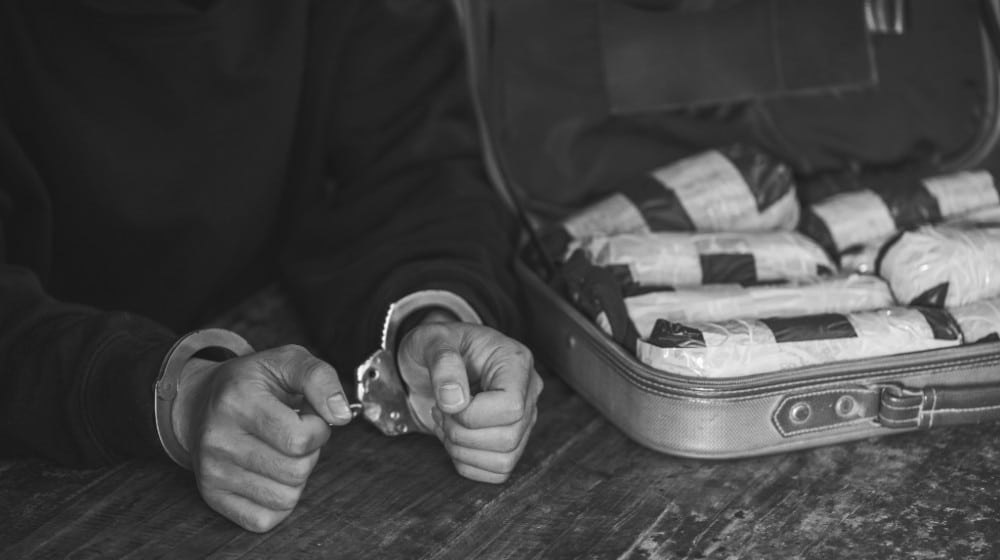
Cocaine and its derivatives are classified as Schedule W drugs under Maine law—the most serious category of controlled substances. As a result, trafficking cocaine is treated as a felony offense and carries severe penalties, even for first-time offenders.
Although once viewed as a “party drug” in popular culture, cocaine is now recognized for its high potential for addiction, overdose, and societal harm. Maine’s criminal justice system reflects this shift in perception by imposing some of the harshest sentencing guidelines for cocaine-related offenses.
Depending on the quantity involved, the presence of aggravating factors (such as proximity to schools or trafficking to minors), and your prior criminal history, penalties can include:
- Mandatory minimum prison sentences
- Substantial fines
- Felony convictions that impact your record permanently
Unlawful Trafficking in Cocaine
Under Title 17-A §1103(1-A)(A) of the Maine Criminal Code, a person commits unlawful trafficking in cocaine when they knowingly or intentionally engage in the sale, furnishing, or possession with intent to sell any Schedule W drug—a category that includes cocaine and its derivatives.
Although the statute does not mention cocaine by name, it applies broadly to all Schedule W substances, including crack cocaine and cocaine hydrochloride.
How Maine Determines Intent to Traffic
Intent is a key element in drug trafficking cases, and Maine law provides specific quantity thresholds that allow prosecutors to infer intent to distribute. According to §1103(3)(B):
- 14 grams or more of cocaine
- 4 grams or more in base form (e.g., crack cocaine)
…is sufficient to support an inference that the person intended to traffic the drug—even if no sale actually occurred.
Penalties for Unlawful Trafficking in Cocaine
Unlawful trafficking in cocaine is classified as a Class B felony in Maine. This carries serious consequences, including:
- Up to 10 years in prison
- Fines of up to $20,000
- Mandatory minimum sentence of 2 years (which cannot be suspended)
Because of the mandatory minimums and felony classification, even a first-time offender may face significant prison time if convicted.
Aggravated Unlawful Trafficking in Cocaine
In Maine, a charge of aggravated unlawful trafficking in cocaine applies when someone violates the state’s basic trafficking statute (Title 17-A §1103) and meets one or more aggravating factors outlined in the law. These factors significantly elevate the seriousness of the offense and lead to much harsher penalties.
What Makes Cocaine Trafficking “Aggravated” in Maine?
According to Maine law, trafficking in cocaine becomes aggravated when any of the following conditions are present:
- The offense involves a minor under the age of 18
- The defendant has prior drug trafficking convictions
- The individual is in possession of a firearm during the offense
- The trafficking occurs within a designated “safe zone”, such as near a school or park
- The accused uses or recruits a minor to assist in the trafficking
- The person possesses at least 112 grams of cocaine
- Or 32 grams of cocaine in base form (e.g., crack cocaine)
Any one of these circumstances may result in an upgrade from a Class B to a Class A felony charge—the most serious category of crime under Maine law.
Penalties for Aggravated Cocaine Trafficking
A conviction for aggravated unlawful trafficking in cocaine carries severe, mandatory penalties:
- Mandatory minimum of 4 years in prison (not eligible for suspension)
- Up to 30 years in prison
- Fines of up to $50,000
- Felony record that will have long-term consequences for employment, housing, and more
Call 207-571-8146 or contact us online to schedule a consult with one of our highly skilled criminal defense & OUI lawyers, serving Southern Maine, today.
Treatment of Marijuana Trafficking
In Maine, marijuana is classified as a Schedule Z drug, the lowest tier in the state’s drug classification system. This reflects its relatively low potential for harm compared to substances in higher schedules. However, despite its legal status for recreational and medicinal use under state law, marijuana trafficking is still a criminal offense in many circumstances.
Although Maine legalized adult-use cannabis, state laws regulate the amount you can possess, grow, or distribute. Selling or transporting marijuana outside the scope of Maine’s legal framework—such as trafficking large quantities without a license—can still lead to criminal charges, including felony offenses.
It’s also important to note that marijuana remains illegal at the federal level, which impacts how it is treated in certain legal contexts, including taxation, interstate transport, and federal criminal prosecutions. This federal-state conflict creates a legal gray area, particularly for those found with large amounts or those involved in distribution across state lines.
Unlawful Trafficking of Marijuana in Maine
While Maine has legalized marijuana for both medical and recreational use, trafficking in large quantities remains a serious criminal offense—especially when the possession or cultivation exceeds what is allowed under state law.
Under Title 17-A §1103(1-A)(C), a person is guilty of unlawful trafficking in marijuana if they knowingly possess 20 pounds or more of marijuana. Similarly, §1103(1-A)(D) makes it a crime to cultivate 500 or more marijuana plants. These offenses are classified as Class B felonies, which carry significant prison time and financial penalties.
Maine law also outlines lesser trafficking offenses in §1103(1-A)(E) and §1103(1-A)(F). These apply when a person possesses more than 1 pound of marijuana or cultivates 100 or more plants. These offenses are charged as Class C felonies, which, while less severe than Class B crimes, still carry meaningful penalties.
Presumed Intent to Traffic
Maine law allows prosecutors to infer intent to distribute based on quantity alone. According to §1103(3)(A), possessing more than 1 pound of marijuana is sufficient to presume that the individual intended to traffic the substance—even if there is no direct evidence of sale or distribution.
Penalties for Marijuana Trafficking in Maine
- Class B Offenses
- Up to 10 years in prison
- Fines of up to $20,000
Mandatory minimums may apply in aggravated cases
- Class C Offenses
- Up to 5 years in prison
- Fines of up to $5,000
Although marijuana is legal in Maine within certain limits, exceeding those limits can quickly escalate into serious felony charges.
Call 207-571-8146 or contact us online to schedule a consult with one of our highly skilled criminal defense & OUI lawyers, serving Southern Maine, today.
Aggravated Unlawful Trafficking in Marijuana
Many of the same factors that elevate a simple cocaine trafficking charge to an aggravated offense also apply to marijuana trafficking—such as trafficking near a school zone, using a minor to assist, or carrying a firearm during the offense. However, Maine law treats quantity as a central factor in marijuana cases, making the legal thresholds particularly important.
For example:
- Possessing more than 1 pound of marijuana can elevate a Class C offense to a Class B felony.
- Possessing 20 pounds or more, or cultivating 500 or more plants, can result in a Class A felony, the most serious level under Maine law.
Even when aggravating factors are present—such as prior convictions, the involvement of a minor, or proximity to a designated “safe zone”—the quantity of marijuana still plays a critical role in determining the severity of the charge. In other words, the more marijuana involved, the more likely it is that the offense will be treated as aggravated, regardless of other circumstances.
Maine’s marijuana trafficking laws are unique in this regard, as the weight or number of plants can dramatically influence how the charge is classified and penalized. If you’re facing a trafficking charge, understanding these thresholds is essential—and so is having a qualified defense attorney to challenge the prosecution’s case.
Treatment of Heroin Trafficking
Heroin is among the most dangerous drugs, and unfortunately it can be obtained fairly easily throughout the general society. Heroin is definitely a schedule W drug, and will remain so forever. Known for its potent effects, heroin overdoses sadly claim the lives of many people throughout Maine and rest of the country every year.
Unlawful Trafficking of Heroin in Maine
Heroin is classified as a Schedule W drug in Maine, placing it in the highest category of controlled substances due to its high potential for addiction, overdose, and abuse. As a result, trafficking in heroin is treated with extreme seriousness under state law.
Under Title 17-A §1103(1-A)(A), a person is guilty of unlawful trafficking in heroin if they knowingly or intentionally sell, furnish, or possess heroin with the intent to distribute it. This offense is classified as a Class B felony, which carries harsh penalties even for first-time offenders.
Interestingly, Maine law does not specify a minimum quantity of heroin that would allow an inference of intent to traffic. Unlike other substances, such as cocaine or marijuana, the statute avoids assigning weight-based thresholds for heroin under §1103(3). Specifically, §1103(3)(F) references unit-based measurements—like pills or capsules—for other narcotics, but excludes heroin from those examples.
This omission likely reflects the highly dangerous nature of heroin. In practice, even small amounts of heroin may be used by prosecutors to infer trafficking intent, especially if the context suggests distribution, such as packaging materials, scales, or large sums of cash.
Penalties for Heroin Trafficking in Maine
- Class B felony conviction
- Up to 10 years in prison
- Fines of up to $20,000
- Felony record with long-term consequences for employment, housing, and civil rights
Call 207-571-8146 or contact us online to schedule a consult with one of our highly skilled criminal defense & OUI lawyers, serving Southern Maine, today.
Aggravated Unlawful Trafficking in Heroin
Because of its status as a schedule W drug, the treatment of heroin mirrors the treatment of cocaine when it comes to aggravated unlawful trafficking. The same exacerbating factors which can elevate trafficking in cocaine can also elevate trafficking in heroin.
Also, like aggravated trafficking in cocaine, aggravated trafficking in heroin will bump the crime up to a Class A violation, and this carries much more severe consequences.
Legal Defenses to Drug Trafficking Charges in Maine
Defending against a drug trafficking charge in Maine can be challenging, especially because state law allows certain quantities of a drug to serve as presumptive evidence of intent to distribute. Under Title 17-A §1103(3), possession of specific minimum amounts automatically permits prosecutors to infer trafficking—even without direct evidence of a sale or transaction.
This legal standard makes it difficult to refute trafficking charges if you’re found in possession of more than the statutory threshold. However, several defenses may still apply, depending on the facts of your case.
Common Defenses to Drug Trafficking Charges:
- Personal Use Defense -One of the most effective defenses is arguing that the drugs were intended solely for personal use, not for sale or distribution. Supporting evidence might include the absence of packaging materials, scales, or large amounts of cash.
- Lack of Knowledge or Control – You may not be legally responsible for drugs found in a shared home or vehicle—especially if you had no knowledge of their presence or did not have control over the space where they were discovered.
- Affirmative Defense – Industrial Hemp – If you’re accused of trafficking marijuana, and the substance in question meets the legal definition of industrial hemp (containing less than 0.3% THC), you may raise this as an affirmative defense.
Each case is different, and the strategy that works best will depend on the specific charges, the type and amount of the substance involved, and how the evidence was obtained. A skilled criminal defense lawyer can analyze your case for weaknesses in the prosecution’s evidence—such as illegal searches, unreliable lab results, or procedural errors—and build a strong defense to protect your rights.
Contact The Maine Criminal Defense Group Today
Maine’s drug trafficking laws are detailed and strict. Controlled substances are classified into schedules based on their perceived danger and potential for abuse—and each schedule comes with its own set of penalties. Even a simple unlawful trafficking charge can carry severe consequences, including felony convictions, mandatory prison time, and long-term damage to your record and reputation. For more serious offenses—like aggravated trafficking or charges involving Schedule W drugs like heroin or cocaine—the penalties are even more severe.
Whether you’re facing allegations involving marijuana, fentanyl, or prescription drugs, the law leaves little room for error. The prosecution has powerful tools at its disposal, and a conviction can affect every area of your life.
Don’t take chances with your future. If you’ve been charged with drug trafficking in Maine, contact a knowledgeable defense attorney as soon as possible. At The Maine Criminal Defense Group, we have over 50 years of combined experience defending clients against complex drug charges. We understand the law, the local courts, and the strategies it takes to protect your freedom.
Call us today for a confidential consultation. The sooner we get involved, the stronger your defense will be.
Call 207-571-8146 or contact us online to schedule a consult with one of our highly skilled criminal defense & OUI lawyers, serving Southern Maine, today.
Blog Posts
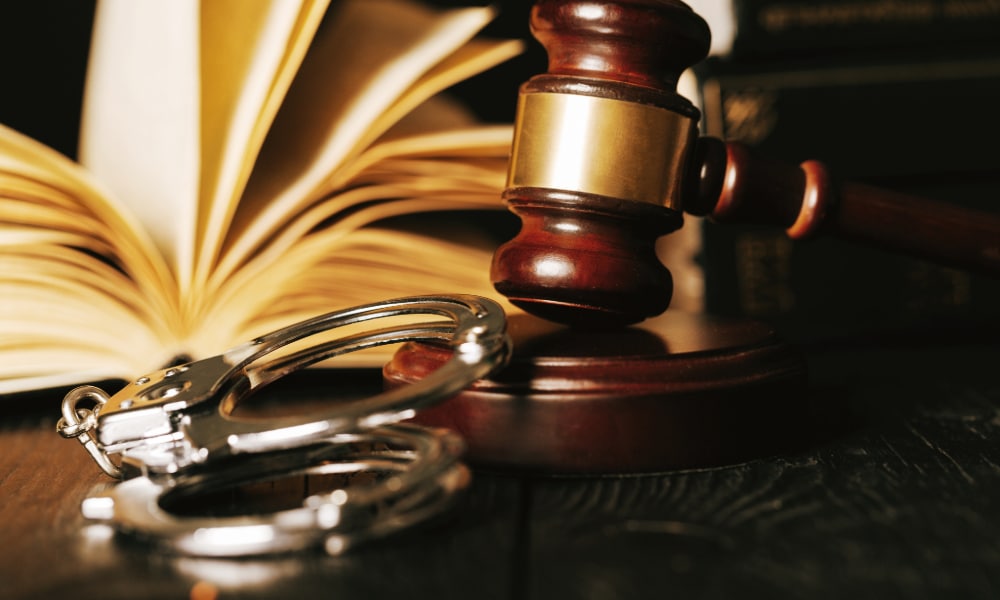
If you are convicted of a drug crime in Maine, your sentence will depend on four main factors: the type of drug involved (classified into four schedules), the amount of[...]

Any criminal charge for a drug-related offense is a serious matter in Maine,but how consequential the outcomes can get may depend on whether the charge is filed at the state[...]
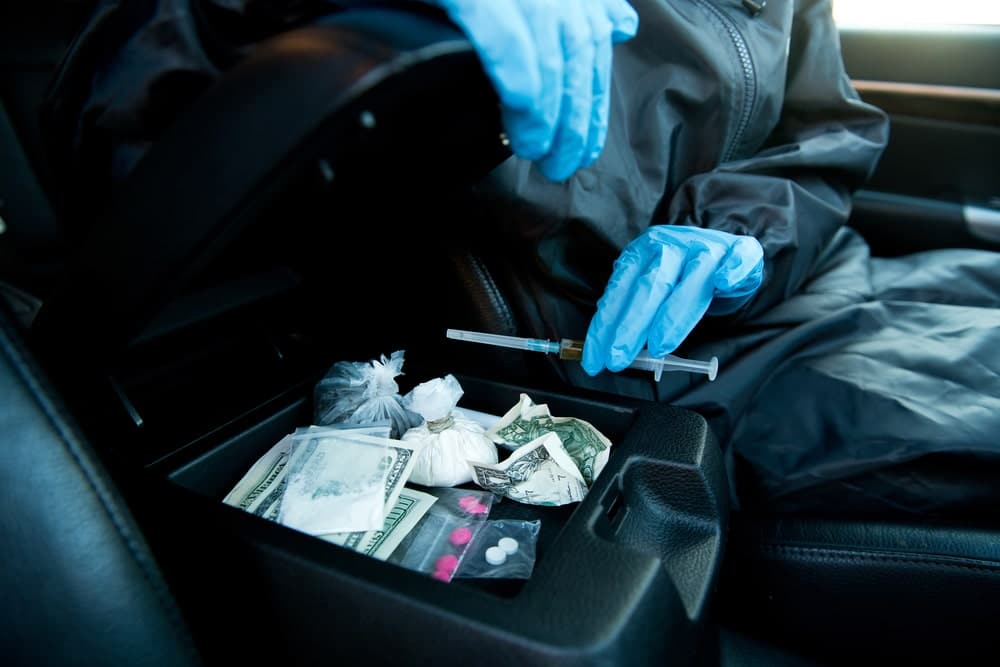
Search and seizure rules are enshrined in the U.S. Constitution and are intended to discourage the government (and law enforcement officials) from overstepping their powers and invading people’s privacy. They[...]

When most people think of drug crime classifications, they automatically assume it references the worst types of drugs (heroin, cocaine, LSD, etc.). But the word “drugs” also includes lots of[...]
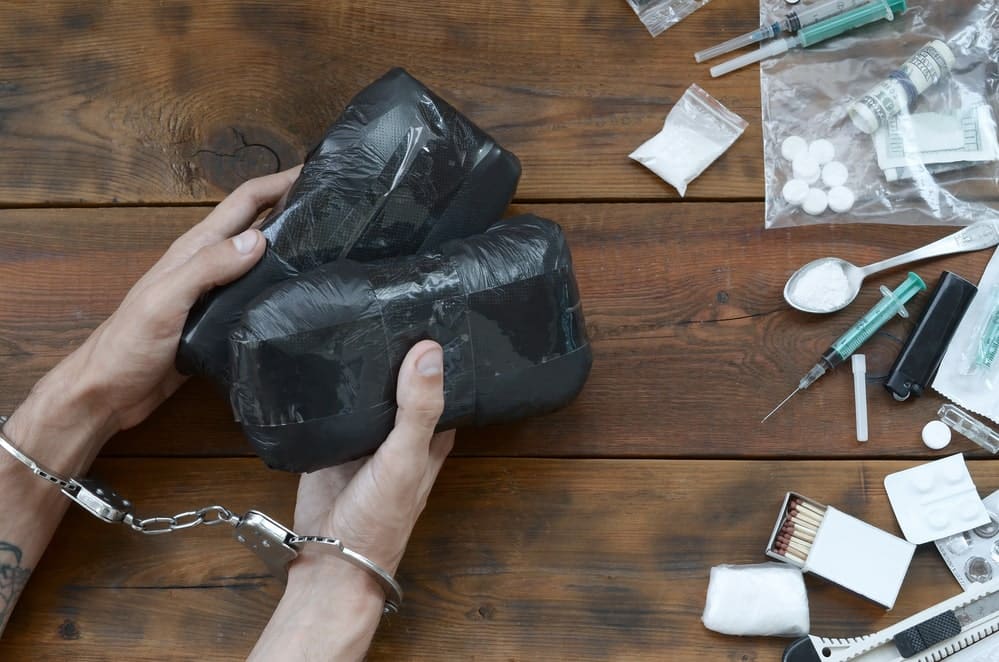
In this post, we will survey Maine’s laws on the possession and trafficking of “scheduled drugs,” and then discuss the classification and possible punishments for drug related crimes. Drug crimes[...]
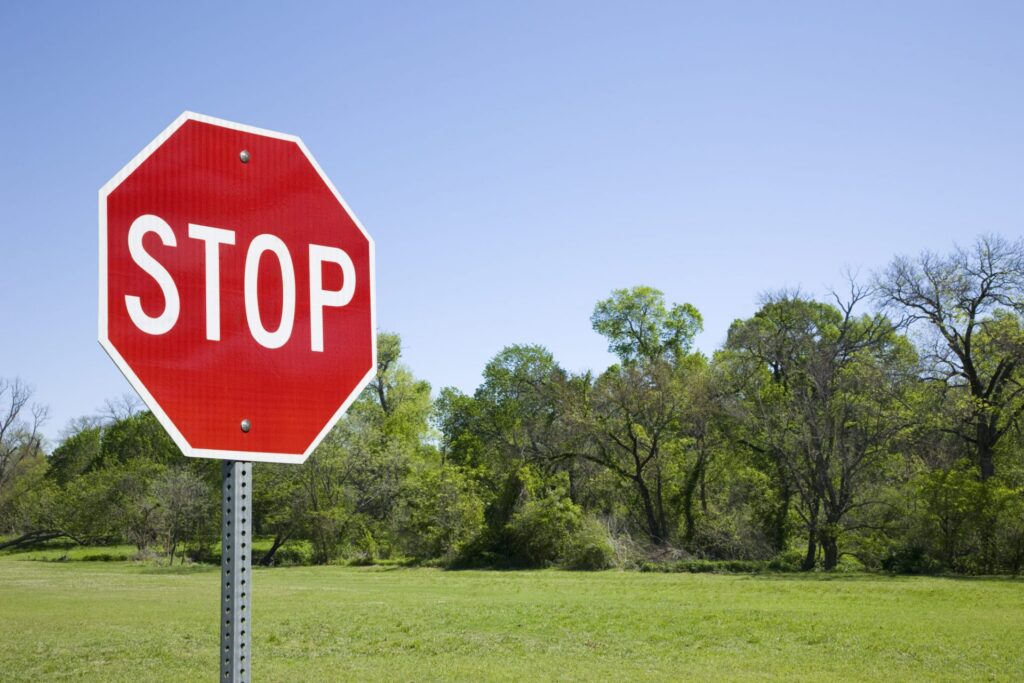
A recent traffic stop in Maine bears a sharp resemblance to a traffic stop that the Supreme Court of the United States had decided was a violation of the Fourth[...]
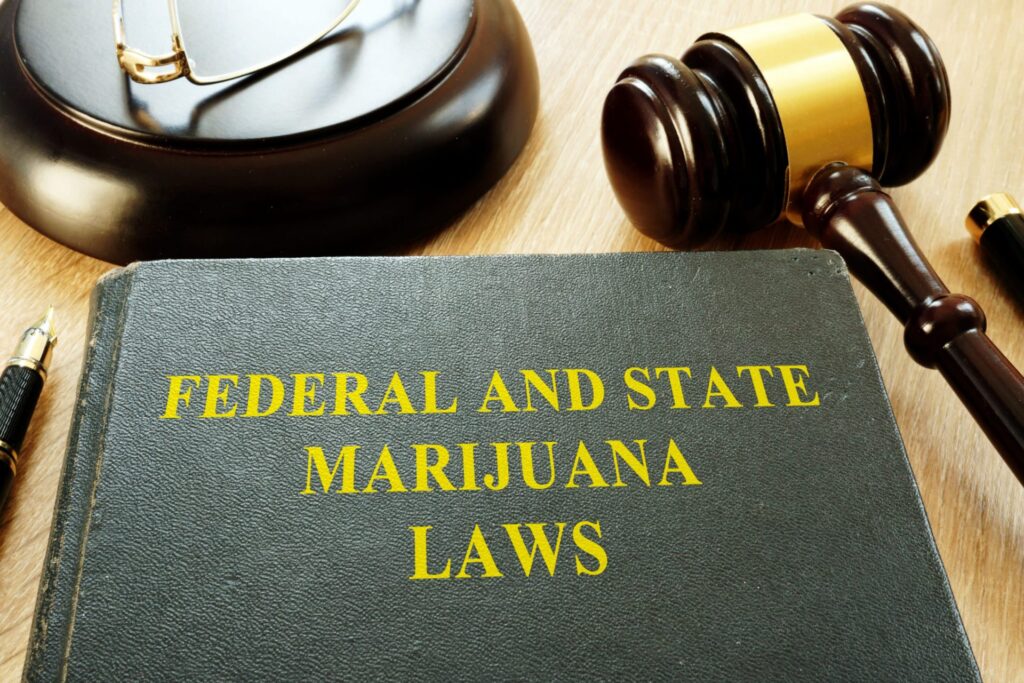
One of the most polarized and confusing aspects of the American criminal justice system today has to do with marijuana. In the past 20 years alone, 28 states in the[...]
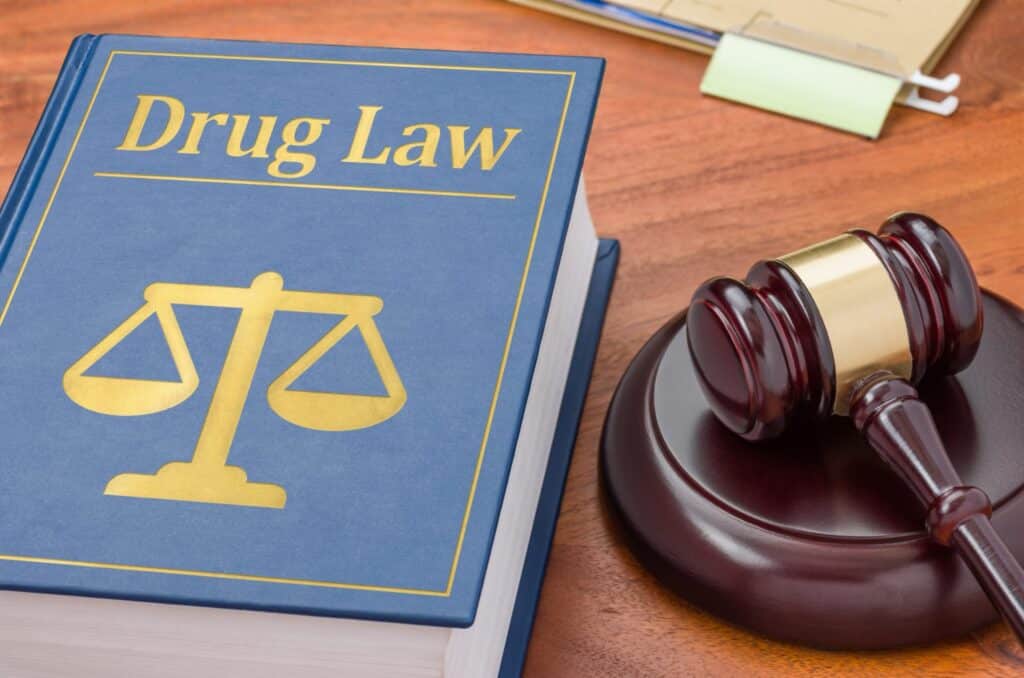
While policy decisions from the White House have been vague or difficult to follow, the new statement on the enforcement of federal drug laws is pretty clear: The Department of[...]
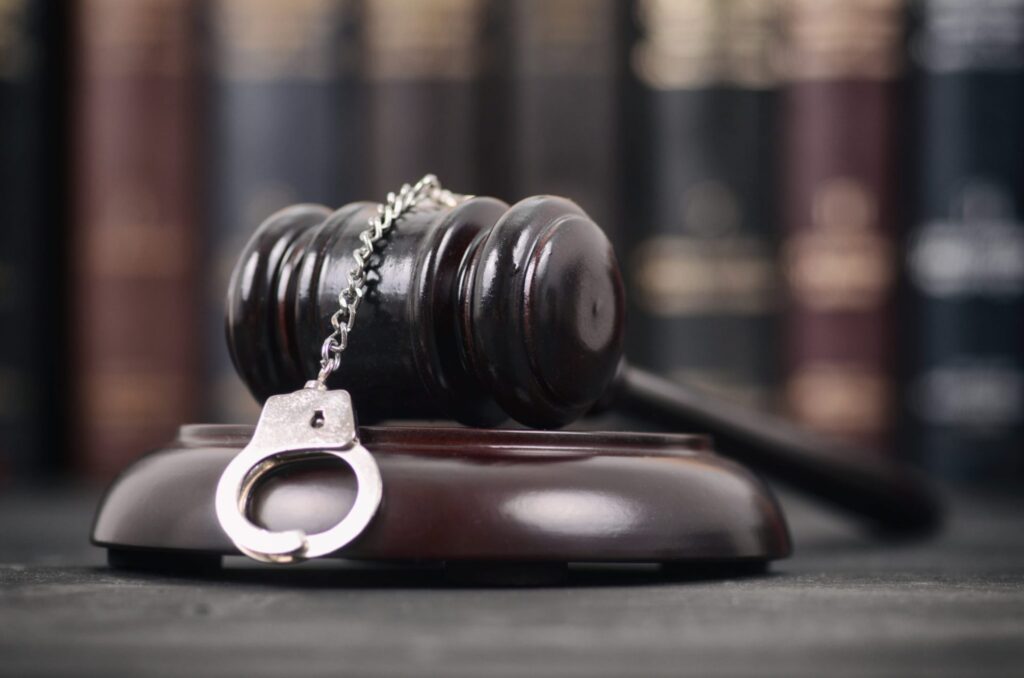
Out of all of the cabinet appointments that president-elect Donald Trump has made, none is more important to the freedom of the people of Maine than that of Senator Jeff[...]

If you have been charged with a crime of possession of drugs, there may be programs available to you to help reduce your sentence or resolve the case more favorably.[...]
